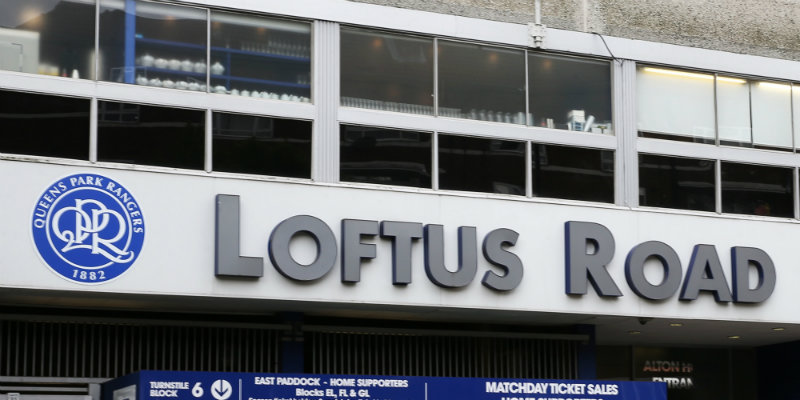QPR and Warren Farm: Just one facet of recovery

With the recent announcement that the construction of Warren Farm training ground will commence this summer, everyone with any sort of spiritual attachment to QPR is once more daring to dream of better times.
The reported estimated cost of £30m for the Warren Farm training site is a real statement of intent from QPR if accurate. With the club also set to meet expense itself, such a heavy investment is a clear sign that the club desires to be the next champion of youth talent. Naturally though, the short-term agenda is to use the new training ground to attract new players, of the calibre required to get QPR back amongst the elite.
Breaking new ground
Having a state-of-the-art training ground is one ‘pull factor’ for potential new players, but many would argue that getting the right permanent manager is perhaps the most important flashpoint of QPR’s immediate future. As with any rumours, current links between Tim Sherwood and QPR have been met with a mixed reaction, especially in light of Sherwood’s failure to show Tottenham the way forward, and his inability to save Aston Villa during the club’s horrific calendar year of 2015.
While Sherwood’s potential appointment will always be a divisive topic, he knows exactly how it is to be part of a new project that could be just one match away from completely unravelling. His participation in Blackburn’s famous title-winning season of 1994/95 is the obvious highlight in that regard, and if he can bring Kenny Dalglish’s managerial values to Loftus Road in the event of his appointment, then that can only be a positive ahead of 2019/20.
Sherwood’s existing links to a Tottenham side rich in youth talent could also be an extremely helpful element moving forward. Yet, while there are clear signs that the powers at QPR have a very real ‘battle plan’ in the short-term, few could blame any QPR supporter for feeling some degree of doubt.
Why so pessimistic?
False dawns have become synonymous with QPR over the past three decades. Under
Gerry Francis, the Rs were the top London club in the very first Premier League season of 1992/93, and through the prowess of Les Ferdinand, QPR established themselves as a respected force. Sadly, for the West Londoners, that was not to last, and a period of short-term decline – particularly following Ferdinand’s departure to Newcastle – yielded relegation in 1996.
There would follow fifteen frustrating years in the wilderness, with a further relegation in 2001 representing a new nadir. Though QPR were able to return to the big-time in 2011, any optimism was quickly withdrawn by the quality of the Premier League, as the promised effects of Tony Fernandes’ ownership failed to truly materialise.
Survival in 2012 was rendered meaningless by a disgraceful 2012/13 season. The Rs went down with a pitiful tally, and though a very lucky promotion via the play–offs followed instantly after, another relegation with Harry Redknapp at the helm showed that precisely nothing had changed.
QPR in dire need of direction
Following the relegation of 2015, the mere expectation of yo-yo league jumps was annoyance enough, but recent years have seen the club’s fortunes take an altogether more discouraging turn. The reasons for the club’s second-tier decline are plentiful, but for all the good a new training ground could do, it is leadership that undoubtedly remains the burning issue right now.
Ian Holloway’s infectious personality and terrace hero status could not work a second time, and Steve McLaren’s tenure as manager will be forever remembered as a lost time that could have culminated in disaster. Caretaker manager John Eustace has yet to truly make the impact he desires, but a back-to-basics approach has worked in part.
That said, there remains plenty of concern about QPR’s overall form, and current sports spread betting news suggests that the West London side remain in danger of the drop, if only by mere dint of mathematics.
Perhaps most notably, only the clubs that went into the Good Friday fixtures occupying the relegation places had conceded more goals than QPR’s tally of 65. The unreliable defence could yet see QPR drop into the second tier, but QPR’s home form may be enough, even though Friday’s defeat to Blackburn made it ten home defeats to offset nine victories down in Shepherd’s Bush.
With a new ground and a high-profile manager reportedly in the sights of the board, the foundation is there to make QPR’s next top-flight campaign the one that brings glorious memories. Though recollections of Ferdinand, Impey, Wilkins and Classic FM sponsorship become more distant with each passing year, the promise of progressive change in multiple areas of QPR’s operation provides an injection of fresh hope amongst the long-suffering Loftus Road faithful.
For if QPR – or any other club – cannot have hope, then existence is futile.
